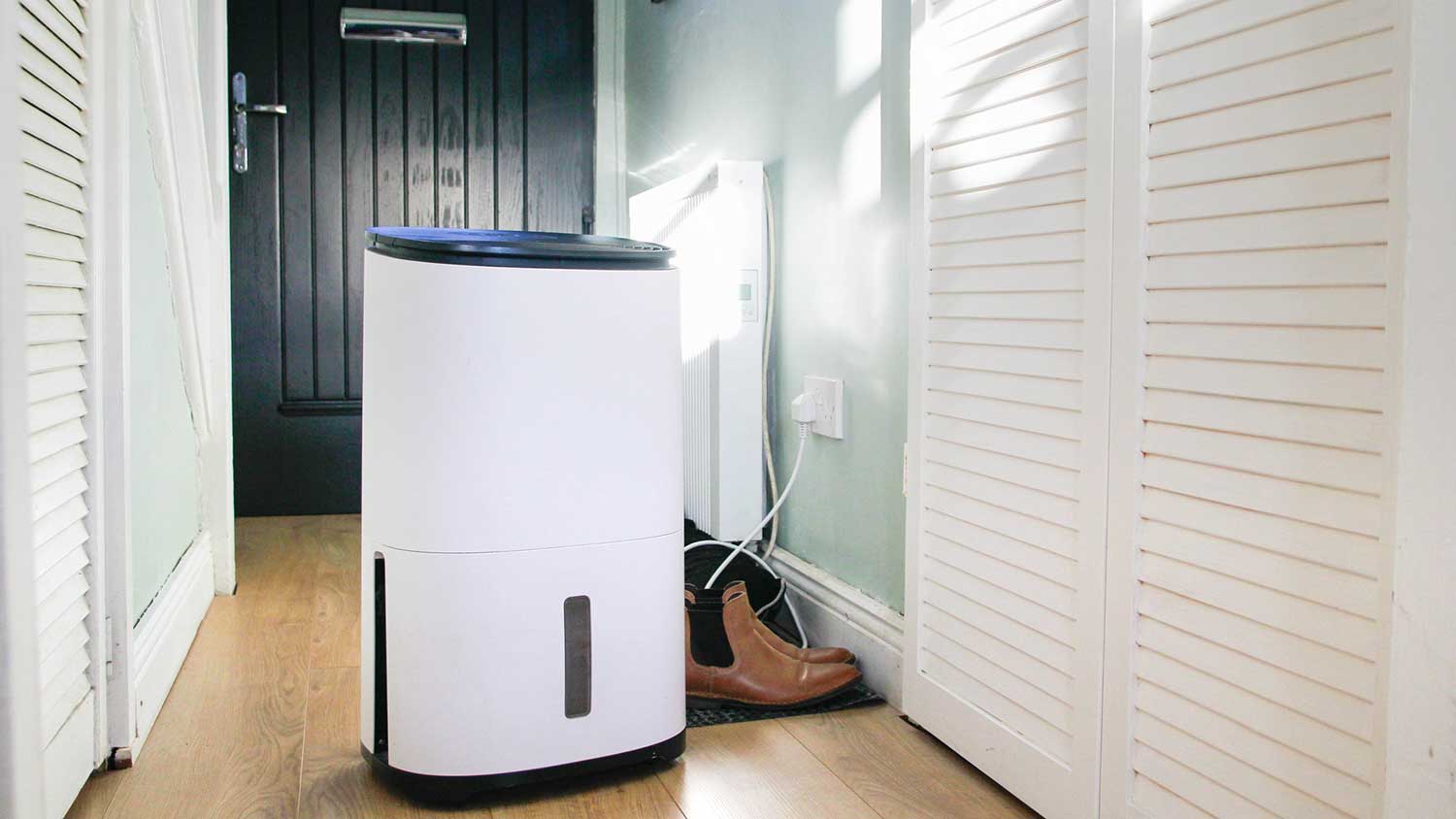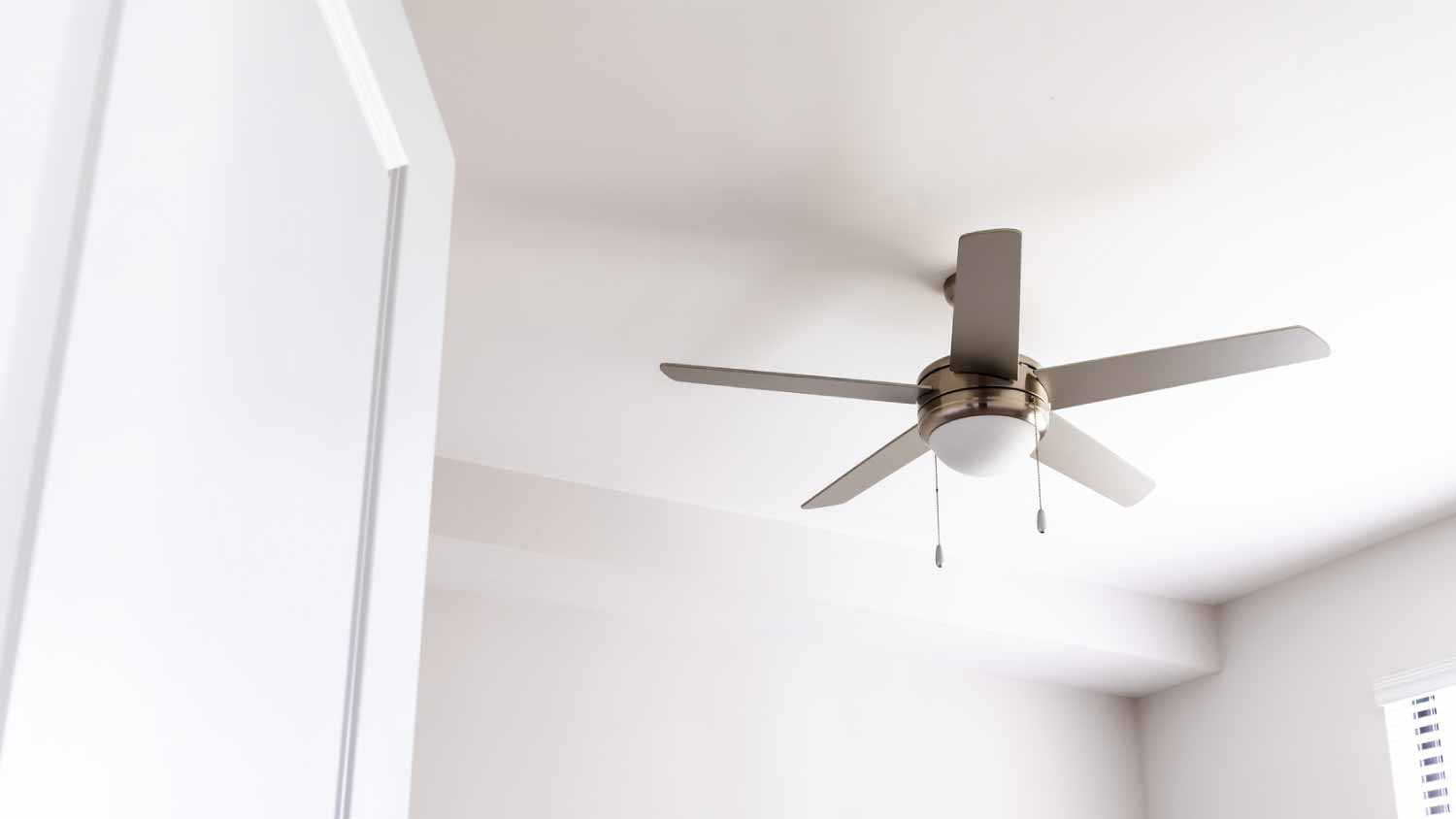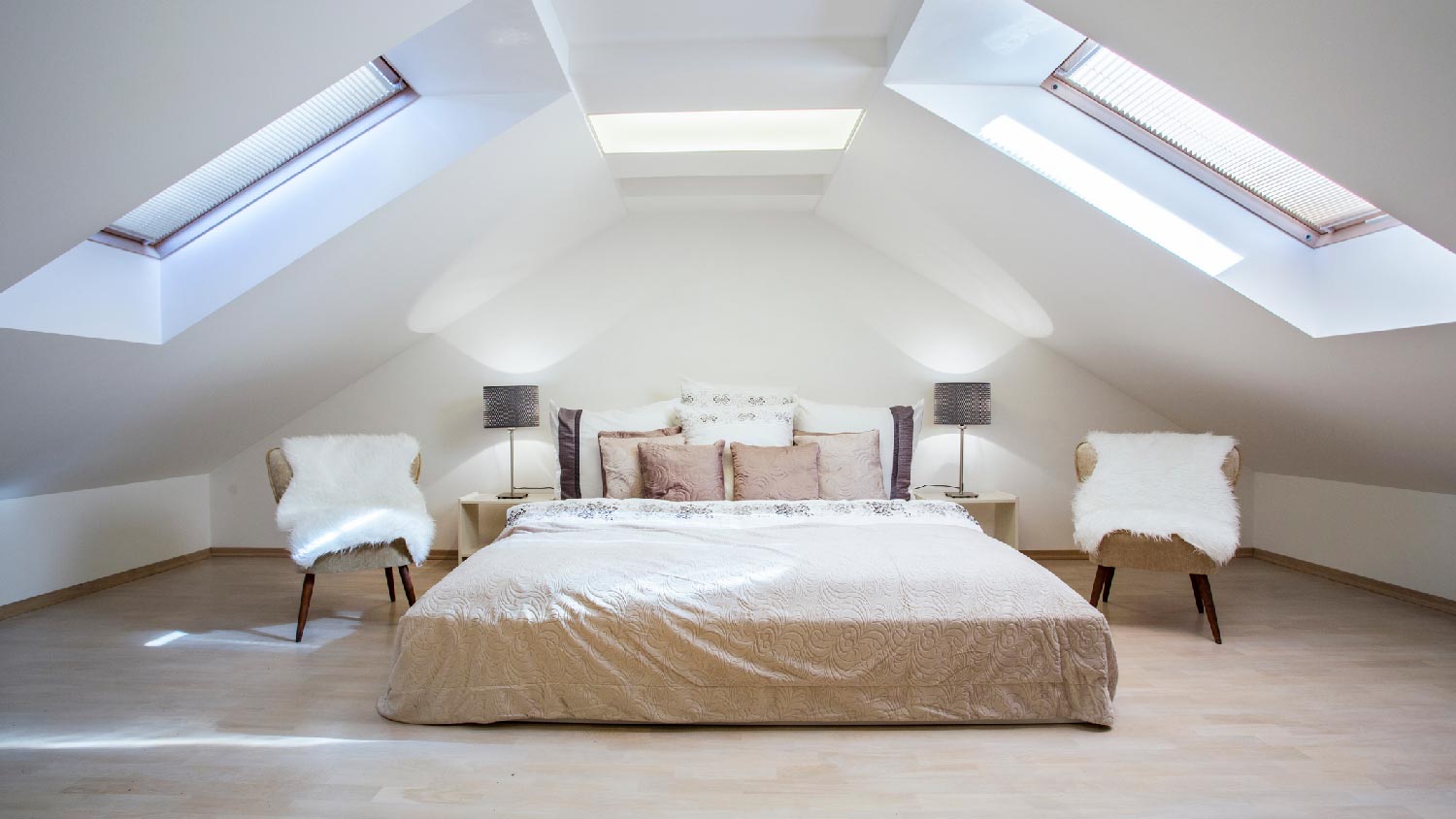How Much Does HVAC Maintenance Cost? [2025 Data]
The average cost of HVAC maintenance is $250, but prices can range from $175 to $350 depending on the type of heating and cooling unit. An HVAC repair pro can recommend services based on your system.


HVAC maintenance costs $250 on average, with a range between $100 and $650, depending on the HVAC type, location, and time of year. For a split AC and heating unit, you might spend up to $350 for routine maintenance.
Regular HVAC maintenance helps prevent the need for significant HVAC repairs, which can impact your wallet. Maintaining your HVAC will also protect your home's comfort level when extreme weather hits. Here’s how to budget for yearly HVAC maintenance costs to keep your system running smoothly.
HVAC Maintenance Cost Factors
Your HVAC system is as unique as your home's architecture. Pairing an air conditioning and heating system is complex, and its design, size, and related maintenance will sway the cost of maintenance visits. Speaking with an HVAC company near you is the best way to know what kind of maintenance schedule you need for your home’s system. The costs we cover in this guide are for HVAC maintenance calls only—not the cost of an HVAC repair.
Unit Type
The two major components of an HVAC system are the heating and cooling units. Your home may include everything from a furnace and central AC to a whole-house fan and a boiler. In some designs, such as a heat pump, one system performs both jobs. Each system features various vent work, thermostats, and special features that require attention.
| HVAC Unit | Average Maintenance Cost |
|---|---|
| Air conditioner | $60–$200 |
| Furnace | $80–$300 |
| Mini-split | $300–$550 |
| Heat pump | $80–$150 |
| Split system | $200–$600 |
| Packaged system | $450–$550 |
Maintenance Type
There are two ways to break down types of HVAC maintenance: routine and proactive. Routine inspections assess basic maintenance needs for the most fundamental aspects of your HVAC system. Proactive maintenance is more involved and helps prevent more significant repairs down the line. There are times when your HVAC pro will combine the cost of an inspection and basic proactive maintenance.
| Routine Inspection | Proactive Maintenance |
|---|---|
| Thermostat inspection | AC drain line flush |
| Confirmation of electrical connections | Condensate pan cleaning |
| Carbon monoxide testing | Refrigerant leak repair |
| Inspection of ignition and blower | Refilling refrigerant, if needed |
| Air duct inspection | Cleaning heating elements |
| Refrigerant level check | Changing filters |
Maintenance Contracts
Are HVAC service contracts worth the money? These contracts cover annual tuneups and basic repairs, depending on the agreement. Not only will they protect you in the event of major damage, but they can also keep you on track if you’re tempted to skip the maintenance visit altogether. These agreements range between $150 and $300 per year. However, going this route isn’t always the most cost-effective solution, so check local costs for HVAC maintenance before signing.
| HVAC Service Contract Pros | HVAC Service Contract Cons |
|---|---|
| Priority service | Can be costly to have |
| Detection of minor issues before they grow | Many major parts are not covered |
| Improvement of overall HVAC life span | Existing HVAC warranties might already cover maintenance |
| Better indoor air quality | Might not use full benefit if DIYing some maintenance |
Labor
An HVAC professional will use several methods of charging for labor. If they have an hourly fee, expect $50 to $150 per hour, depending on the complexity of the service. In most cases, they will charge a flat fee by service, such as an inspection cost of $200 to $400 or costs calculated by the size of your home.
Location
Keep in mind that where you live will affect where the price falls on these ranges. In addition to the cost of living in your area, prices can change due to:
Local climate
Demand for HVAC professionals
Access to your home
Local tax rebates
Time of Year
Your HVAC company will charge more during their busy months, so it’s best to plan your maintenance calls for their slower seasons whenever possible. HVAC companies are the busiest during the summer, with winter a close second, so scheduling maintenance in the fall or spring is a good idea. Plus, getting your maintenance done before the hottest and coldest parts of the year will help you make sure everything is working properly to avoid any last-minute problems.
How Often Should You Schedule HVAC Maintenance?
Schedule your HVAC maintenance twice a year, once in the spring and once in the fall. For example, if you have a cooling system, schedule a tuneup in the spring before the summer heat kicks in. If you have a heating system, schedule another tuneup in the fall before winter temperatures drop. Timing your service calls ahead of time will help you stay comfy.
You can also follow an HVAC maintenance checklist for DIY tasks like conducting regular visual inspections and regularly changing filters.
HVAC Maintenance Cost by Unit Type
As we touched on above, maintenance costs for your HVAC will vary widely depending on the design of your system. Each type has a unique series of parts that require maintenance, repairs, and occasional replacement.

Air Conditioner
An annual AC tuneup costs between $60 and $200, depending on the type and size of your unit. You can even handle most window and portable AC tuneups yourself for little to no money. An AC tuneup will include:
Cleaning or changing filters
Clearing condensate lines
Checking condensate drain pains
Testing the evaporator coil
Testing the thermostat
Checking for loose electrical connections
Cleaning air duct blockages
Furnace
Before the start of winter, invite a heating specialist to inspect your furnace for between $80 and $300. This is particularly important for gas-fueled furnaces, as your HVAC tech ensures no gas leak is present.
During the visit, they will:
Test the thermostat
Inspect the ignitor
Check for rust or corrosion
Inspect electrical connections
Test the motor fan
Inspect the heat exchanger
Inspect the gas valve
Mini-Split
One of the benefits of a mini-split is the lack of ductwork. Enjoy zoned cooling to lower your energy bills and spend less on maintenance than you would on an extensive central AC system. Annual HVAC maintenance for a mini-split costs between $300 and $550 on average and includes:
Lubricating motors
Testing for proper airflow
Tightening connections
Unit cleaning
Heat Pump
Heat pump costs are lower than those for other systems in many respects, including maintenance. You’ll pay between $80 and $150 per year for basic heat pump maintenance, primarily so a pro can check electrical connections, lubricate the motor, inspect the coils, and check for leaks in the ductwork.
Split System
You can also consider HVAC maintenance costs in terms of split and packaged systems. Split systems are the most common, with a unit inside and outside your home. Since your heating and cooling units run independently, they’re easier to monitor. HVAC maintenance for split systems ranges between $200 and $600 per year.
Packaged Heating and Air
While packaged AC and heaters aren’t the most common type of HVAC setup, they’re ideal for moderate climates and homes with minimal space. Since all parts are packed together in one system, it’s more costly to maintain. Expect to spend between $450 and $550 per year.
Cost of Common HVAC Maintenance Add-Ons
Having your HVAC system serviced is a great way to ensure its longevity while keeping your home at a comfortable temperature. But did you know that there are other projects you can do simultaneously that will help increase your home’s energy efficiency? Other projects that you can tackle at the same time as your HVAC maintenance include:
Air duct cleaning cost: $270–$525
Furnace cleaning cost: $70–$400
Air duct sealing cost: $500–$4,000
Mold remediation cost: $1,250–$3,750
Thermostat repair or replacement cost: $125–$270
HVAC Repair vs. Replacement
The average HVAC replacement cost will almost always outweigh the cost of annual maintenance and follow-up repairs. You’ll pay anywhere from $5,000 to $12,500 for a new heating and cooling system or even more for one that needs extensive ductwork. The cost is only worth if:
Repairs add up to more than a new system
Your system is no longer efficient to run
The system is too old to find replacement parts
Below, we’ve listed some of the most common HVAC repairs you might need. While the list isn’t all-inclusive, it does give you a good idea of what to expect as your heat and cooling system ages.
| HVAC Repair | Average Cost |
|---|---|
| Circuit board | $200–$600 |
| Thermostat replacement | $100–$600 |
| Fan motor | $100–$700 |
| Refrigerant recharge | $200–$500 |
| AC leak | $200–$1,600 |
| Ignitor | $150–$250 |
| Heat exchanger | $100–$200 |
DIY HVAC Maintenance vs. Hiring a Pro
One of the nicest perks of HVAC maintenance is that you can do basic—though essential—tasks yourself. Create an HVAC maintenance checklist to lower costs on repairs and the frequency of visits by a professional. Easy-to-DIY tasks include:
Cleaning or changing HVAC filters
Flushing the AC condensate line
Dusting evaporator coils
Inspecting and cleaning the outside of ductwork
Clearing debris from your outside HVAC unit
Testing your thermostat and reporting issues early
You’ll save an average of $150 by skipping one HVAC tuneup and handling the basics on your own. However, HVAC systems can be complicated due to their many moving parts, which is why calling a pro is the best way to ensure your system is being maintained properly.
If you do choose to DIY your HVAC maintenance, it’s still important to call an HVAC specialist for at least one annual visit to ensure your system is safe and working efficiently.
Do not handle refrigerant, refrigerant lines, ignitors, or any of the electrical elements on your HVAC. While you can safely solve problems to narrow down the issue, always call a trained professional for repairs.
How to Save Money on HVAC Maintenance Costs

The best way to lower HVAC maintenance costs is to keep your system in tip-top shape. As mentioned above, dusting and cleaning a system goes a long way. The earlier you catch a potential problem, the less expensive it may be to fix. Additional cost-saving tips include:
Check your system's warranty and home insurance plan for reimbursement options.
See if your home warranty covers an HVAC tuneup.
Schedule a tuneup during the slow time of year during the fall and spring.
Monitor your HVAC energy use via smart thermostats so you can catch issues early on.
Know when to replace your system instead of completing costly repairs.
How Angi Gets Its Cost Data
Home is the most important place on earth, which is why Angi has helped more than 150 million homeowners transform their houses into homes they adore. To help homeowners with their next project, Angi provides readers with the most accurate cost data and upholds strict editorial standards. We extensively research project costs to develop the pricing data you see, so you can make the best decisions for you and your home. We rely on reputable sources, including the U.S. Bureau of Labor Statistics, academic journals, market studies, and interviews with industry experts—all to ensure our prices reflect real-world projects.
Want to help us improve our cost data? Send us a recent project quote to costquotes@angi.com. Quotes and personal information will not be shared publicly.
Frequently Asked Questions
During your HVAC preseason maintenance call, your contractor will inspect the system for any problems and make small adjustments for better efficiency. Tasks include, though are not limited to:
Changing filters
Checking the thermostat
Clearing away dust and debris
Checking for mold
Inspecting electrical elements
Inspecting condensate lines and drain
Cleaning evaporator coils
Ensuring ignition function
While you can do some of these services yourself, hiring a professional to keep HVAC equipment running can be helpful. These experts know what to look for and may be able to spot potential issues before they become problems. Many HVAC companies offer annual maintenance plans.
For most systems, an annual HVAC system service is more than enough. Some homeowners prefer a twice-a-year visit to ensure the system is ready for the upcoming summer and winter seasons. If you need to call an HVAC pro more often than this, it may be time to check if your system is getting old enough for a replacement.
Your HVAC system will last between 10 and 30 years, depending on how well it’s maintained. Furnaces, for example, last an average of 20 years, while boilers can last just over 30. Your local climate, the brand of the system, and proper installation will also play a role.
Avoiding HVAC maintenance will only lead to more costly repairs over time. The parts of both your heating and cooling systems require cleaning and lubricating to work properly. If you skip these steps, essential parts such as your condensate lines, evaporator coils, motors, and more will run into critical problems.
While spending money once or twice a year to tuneup your AC and furnace might seem like a waste of money, think again. The cost of HVAC maintenance is far less than the cost of replacing your furnace or AC unit, regardless of the type of HVAC system you have. Paying this smaller fee now will help you avoid paying much more significant costs in the future. Not to mention, having a serviced AC and heating system will help keep your home comfortable, no matter the season.





- Furnace Repair
- Air Conditioning Repair
- HVAC Repairs
- Furnace Installation
- Wood & Pellet Stove Repair
- Dehumidifier & Humidifier Repair
- Heat Pump Companies
- Swamp Cooler Repair
- Wood Stove Services
- HVAC Companies
- Commercial A/C Repair
- Geothermal Installation
- Air Conditioning Installation
- Boiler Repair
- 24 Hour Furnace Repair
- Geothermal Repair
- Heat Pump Repair
- Humidifier Installation
- Thermostat Repair
- Thermostat Installation
- Nest Installation
- Heating & Cooling
- Heating Repair
- Furnace Cleaning
- Furnace Tune-Up
- HVAC Technicians
- Subcontractors
- Furnace Maintenance
- Plumbing & Heating Companies
- Wood Stove Inspection
- Mini Split Installation
- Wall Heater Repair
- Duct Installers











